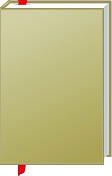

 |

|

The average rating for Twentieth century psychiatry based on 2 reviews is 3 stars.
Review # 1 was written on 2012-08-21 00:00:00 John D Phelps John D PhelpsThis is a book about feminism in academia, Women's Studies, and how much it has gone downhill from being a fresh, new voice for women, exposing women's historical stories and contributions to our culture, into an intolerant, hostile boot camp for indocrinating women to become feminists. It's written by two former Women's Studies professors. A quote by Albert Camus at the beginning gives a sense for their role: "Every revolutionary ends by becoming either an oppressor or a heretic." They were specifically targetting Women's Studies, not feminism in general, as they are still devoted feminists. Nonetheless, Women's Studies is "the academic arm of feminism," so the same arguments go for any feminists that engage in the same behaviors this book discusses. It was fascinating to get this peak into Women's Studies, as I always wondered what those classes were like. This book talks a lot about the hostility men and heterosexual women face in these classes, the policing that goes on to ensure that everyone is toeing the feminist party line, the ways academic feminism obsesses over language and political correctness, how dissenting voices are silenced, how the classroom is more like a bitchfest and therapy session than a critical and rigorous education, and how they shun all male-influenced scholarship, which essentially walls them off from the rest of academia and robs women of an education. My favorite thing about this book is the explanation of academic feminists' chilly attitude toward science and scientists. It explained a lot. The book was extremely persuasive. The authors are impressively logical and talented at constructing a solid argument. I paid close attention to all of their commentary, but much of the book was consumed with stories of former and current Women's Studies professors and students. This anecdotal technique is very common in Women's Studies, so the authors used it in an ironic way to show how flawed Women's Studies is. It's more personable, but it seriously compromises the credibility of the argument. It's easy to manipulate statistics, but it's so much easier to cherry pick anecdotes. It makes it impossible to disprove or debate. The only thing you have left to go on is the integrity of the authors. I did get the sense that they had integrity, and were trying to tell the whole story, as they were honest that they sometimes got mixed answers, or answers that contradicted their argument, and they seemed careful to quote people verbatim and provide enough context. Nonetheless, I did get the sense they somewhat exaggerated how bad things are in Women's Studies. From reading this book, you'd think this kind of behavior is rampant. While I'm sure it's quite common, I feel skeptical that it's as bad as this book makes it out to be. |
Review # 2 was written on 2015-08-22 00:00:00 Michael Walls Michael WallsThis book is really about the field of "women's studies" in American universities, not feminism per se, which seems substantially different for the most part. It's worth reading for anyone interesting in feminism in academe, since much of that is tied in with women's studies departments. It's also worth reading if you want an example of what can happen when political ideology supplants rigorous standards of rationality and empiricism. Once again, the academic left is making a fool of itself. |
CAN'T FIND WHAT YOU'RE LOOKING FOR? CLICK HERE!!!